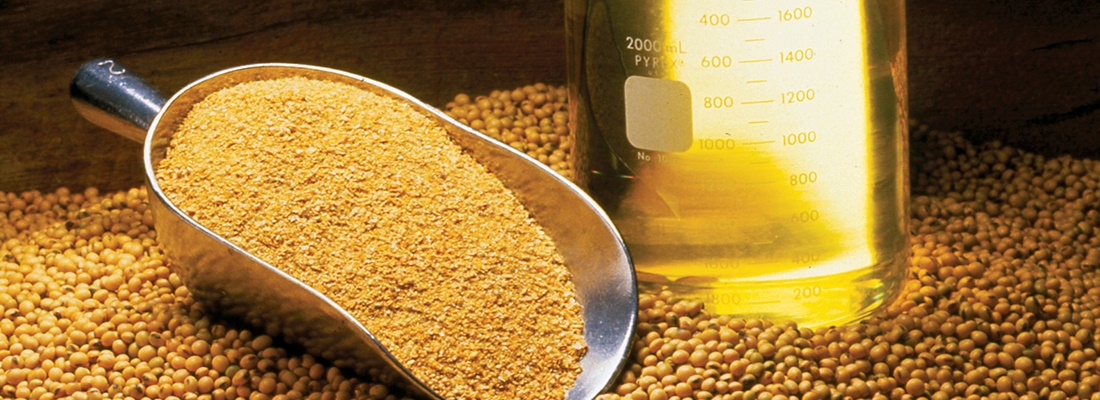
Argentina fecha acordo de exportação de óleo de soja com a China, perspectivas de farelo de soja ficaram frias
dez, 18, 2018 Postado pordatamarnewsSemana201851
A Argentina exportará entre 300 mil e 400 mil toneladas de óleo de soja para a China depois de março, quando a colheita começar, segundo uma fonte do governo argentino. No entanto, como os EUA e a China estão cada vez mais perto de resolver sua disputa comercial, os interesses chineses de comprar farelo de soja argentino diminuíram. Até 2009, a Argentina costumava ser o maior exportador de óleo de soja para a China, com 3 a 4 milhões de toneladas por ano, até a China decidir produzir localmente a commodity. As exportações de soja para a China ganharam lentamente impulso a partir deste ano, após dois anos sem atividade.
Supporting Sources:
Argentina clinches China soyoil export deal, soymeal talks fizzle
BUENOS AIRES, Dec 5 (Reuters) – China will ramp up imports of Argentine soyoil after Argentina begins harvesting its next soy crop in March, a government official told Reuters, but talks toward reaching a deal to sell soymeal livestock feed to China have fizzled.
The soyoil agreement is good news for Argentine crushing plants that manufacture soyoil and have been hard hit by the U.S.-China trade war.
“The Chinese agreed to buy 300,000 to 400,000 tonnes of soyoil from Argentina,” Santiago del Solar, chief of staff to Argentina’s agriculture secretary, said late on Tuesday. He said the deal was signed during President Xi Jinping’s state visit at the weekend.
That compares to 120,000 tonnes of soyoil sent to China over the last three years, del Solar said, and would be worth $185 million to $250 million per year, based on current prices.
But negotiations aimed at allowing soymeal livestock feed to be exported to China have gone cold, while China and the United States enter talks aimed at ending the trade war, he said. “They are not interested in buying soymeal from us right now, but we will keep talking,” del Solar said.
He did not say why China had backed away. The Chinese embassy in Buenos Aires did not respond to a request for comment.
China so far has chosen to support its own crushing industry by importing raw beans to be processed in Chinese plants. But trade tensions have all but halted U.S. beans going to China.
SPONSORED
“If China does not re-establish soybean imports from the United States, it is possible they will come back to Argentina to talk about importing soymeal,” said Gustavo Lopez, head of the local Agritrend consultancy.
Argentina is the world’s biggest supplier of both soymeal and soyoil, which is used in cooking and making biofuels.
Washington and Beijing’s trade dispute has made Argentine crushing plants uncompetitive against their U.S. counterparts, which are benefiting from a soy glut created by the 25 percent tariff that China has placed on U.S. beans.
Argentine crushing plants have been reduced to working at only 55 percent capacity.
Until 2009, Argentina was the biggest supplier of soyoil to China, with volumes of 3 or 4 million tonnes per year.
“China then introduced a new policy to increase its own crushing facilities, so it put up some technical barriers against importing Argentine soyoil,” said Gustavo Idigoras, president of the CIARA-CEC chamber of grains exporter and soy crushing companies.
Toward the end of 2015, China halted all Argentine soyoil imports for two years. The trade started picking up slowly this year. (Reporting by Hugh Bronstein, additional reporting by Karl Plume in Chicago, editing by Ross Colvin and Rosalba O’Brien)
-
Carnes
nov, 18, 2024
0
Brasil amplia negociações para exportação de carne bovina para a Turquia
-
Navegação
jun, 28, 2024
0
Frete global aumenta, mas mostra sinais de fraqueza nos EUA
-
Portos e Terminais
fev, 09, 2023
0
Terminal de Contêineres de Paranaguá recebe nova linha marítima
-
Aço e Alumínio
fev, 09, 2024
0
Gecex restaura tarifas de importação para cinco produtos de aço


